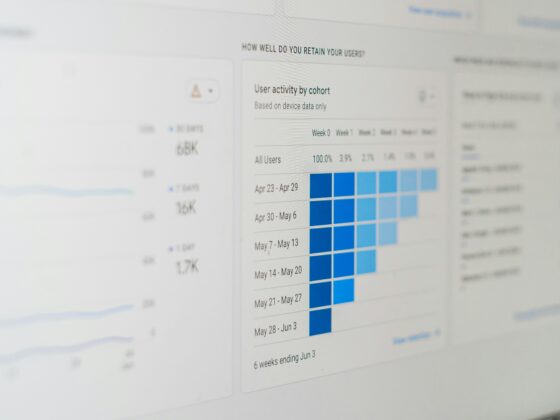
In the ever-evolving world of hospitality tech, the ability to adapt quickly and scale efficiently is essential. Founded in 2015, Tokeet has positioned itself as a nimble, user-centric platform built to meet the unique needs of short-term and mid-term rental managers worldwide. With a global user base and a suite of integrated tools, the company has grown steadily—without relying on outside venture capital—while continuing to push the envelope in automation, artificial intelligence, and affordability.
“We started Tokeet during a time when the short-term rental market was rapidly evolving, but the available software tools hadn’t caught up with the needs of modern property managers,” explained Kwesi Steele, founder and CEO. “Our goal from day one was to create a more intelligent, user-friendly, and accessible solution for managing vacation and mid-term rentals—one that could scale from a single property owner to a global rental agency.”
From Frustration to Innovation: Tokeet’s Founding Story
The company’s origin story is rooted in real-world frustrations. Steel—a seasoned technologist with prior roles at IBM, DoubleClick, and Google—was managing his own vacation rentals in the Caribbean when he encountered the same pain points many operators still face today: clunky interfaces, disconnected systems, and complexity where there should be simplicity. Rather than settling for a patchwork of solutions, he opted to build something better from the ground up. That experience continues to shape the platform’s priorities.
“What sets Tokeet apart is our commitment to building a truly integrated, intelligent platform that balances simplicity with depth,” Steel said. “We offer a comprehensive suite of tools—including channel management, dynamic pricing, AI-driven automation, and even direct booking websites—all under one roof.”
Operating with a lean global team of about 50 people, Tokeet has grown sustainably by design. The company’s choice to avoid major VC funding isn’t just philosophical—it’s strategic.
“This independence allows us to stay closely aligned with our users’ needs rather than the demands of investors,” said Steel. “Our lean and efficient operating model means we can innovate quickly, respond to market shifts, and maintain pricing flexibility that benefits our customers.”
At its core, Tokeet is built to centralize property management tasks across multiple platforms. It connects directly with booking channels like Airbnb, Booking.com, and Expedia, allowing users to manage calendars, pricing, availability, guest messaging, invoicing, and even direct bookings—all from one dashboard.
“Our tools use artificial intelligence to automate tasks like rate adjustments, triggered messages, and workflow assignments,” noted Steel. “For example, if a guest books a stay, Tokeet can automatically send confirmation emails, schedule a cleaning, adjust the calendar on all other platforms, and generate an invoice—without the manager lifting a finger.”
Customer Success That Scales
The company’s value proposition is underscored by its client success stories. In Athens, Upstreet scaled to over 230 properties using Tokeet to automate listings, streamline operations, and enhance financial reporting. In Lisbon, The City Concierge expanded to six cities with a 270% growth rate, aided by automation and improved staff productivity. Meanwhile, a solo operator in London, Michael Clark, used Tokeet’s Sympl and Rategenie tools to turn his personal flat into a full-time rental income stream—freeing him to leave his day job and pursue a passion for AI.
This type of operational empowerment is exactly what Tokeet aims to provide.
“Tokeet solves some of the most common and critical pain points in rental property management,” Steel said. “Managing listings across multiple booking platforms is a logistical nightmare without the right software—we solve that with seamless channel synchronization.”
Other tools include automated guest messaging, dynamic pricing, staff coordination, and financial reporting, all designed to give property managers more time and control over their businesses.
As the hospitality industry becomes more complex and guest expectations rise, Tokeet continues to invest in its core technology. One recent highlight is the launch of AdvanceCM, a next-generation, AI-powered channel manager.
“It takes everything we’ve learned over the years and packages it into a streamlined, powerful solution that can literally put property management on autopilot,” Steel said. “We see it as a glimpse into the future of the industry—one where smart technology does the heavy lifting, and managers can focus on scaling their businesses rather than chasing operational fires.”
Staying Lean, Smart, and Focused on the Future
Looking ahead, the company’s roadmap includes expanding its presence in the mid-term rental segment, deepening AI capabilities, and enhancing user experience across its platform. Strategic partnerships and new integrations are also on the horizon to drive additional value for customers.
Despite the rapidly growing landscape of proptech startups and hospitality solutions, Tokeet’s disciplined approach has helped it stand out. Today, the platform supports over 60,000 properties in more than 95 countries.
“We’re not just building tools—we’re helping redefine how people manage hospitality businesses, with a strong focus on sustainability, affordability, and innovation,” Steel added.
As for advice to others in the hospitality industry, the company’s message is clear: embrace adaptability and automation.
“The hospitality industry—especially short-term rentals—is in a constant state of evolution,” Steel explains. “Our advice? Embrace automation and data-driven decision-making. The more you can offload repetitive tasks and trust your systems to optimize your business, the more time you’ll have to focus on guest experience and growth.”










